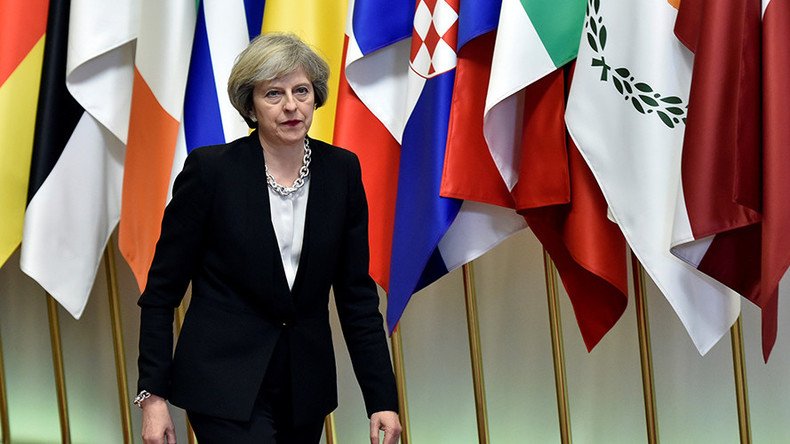British Prime Minister Theresa May has told MPs she will unveil her Brexit blueprint in the New Year but refused to commit to giving Parliament a vote on the final deal.
May made the comments on Tuesday while being grilled by the Commons Liaison Committee amid frustration from some MPs at the lack of information on how she intends Brexit to unfold.
May told MPs she will spell out “more details” of her Brexit plans “early in the New Year.”
She said she would make a speech on the issue in January and said Parliament would have “ample opportunity” to scrutinize the plans and the final deal.
However, she refused to explicitly commit to giving Parliament a vote on whatever she negotiates.
Some have suggested that Parliament would have to vote on the deal under law, but May refused to answer whether she would allow one.
Asked about potential transition arrangements, she said: “When people talk about transition, often different people mean different things by transition.
“There are some people who will talk about transition as a deliberate way of putting off actually leaving the European Union.
“For others transition is an expectation that you can’t get the deal in two years and therefore you’ve got to have a further period to do it.”
She did confirm Article 50 of the Lisbon Treaty, which needs to be triggered in order to start formal negotiations, would be set into motion at the end of March to begin two years of talks.
She insisted the government is “not setting out to extend that period.”
Nicola Sturgeon unveils Brexit plan for Scotland
Earlier on Tuesday, Scottish First Minister Nicola Sturgeon said the whole of the UK should stay in the EU’s single market and threatened a second independence referendum if Scotland is forced out.
In publishing a series of demands to protect Scotland’s place in Europe, she said her proposals go further than looking after Scotland’s interests but could “unify the country around a clear plan.”
Sturgeon outlined Brexit options in the paper title ‘Scotland’s Place in Europe.’
She said her preferred option for Brexit would see the UK remain in the EU single market.
However, that would mean Britain signing up to EU’s freedom of movement rules, a scenario that has been ruled out by May.
Another Brexit option outlined by Sturgeon would see Scotland remain in the single market without the rest of the UK, a situation which could mean a ‘hard border’ between Scotland and the rest of the country.
She argued that under this option, free movement of goods, services and people would continue across the UK, even though Scotland would be in the single market and the rest of the UK would be outside.

